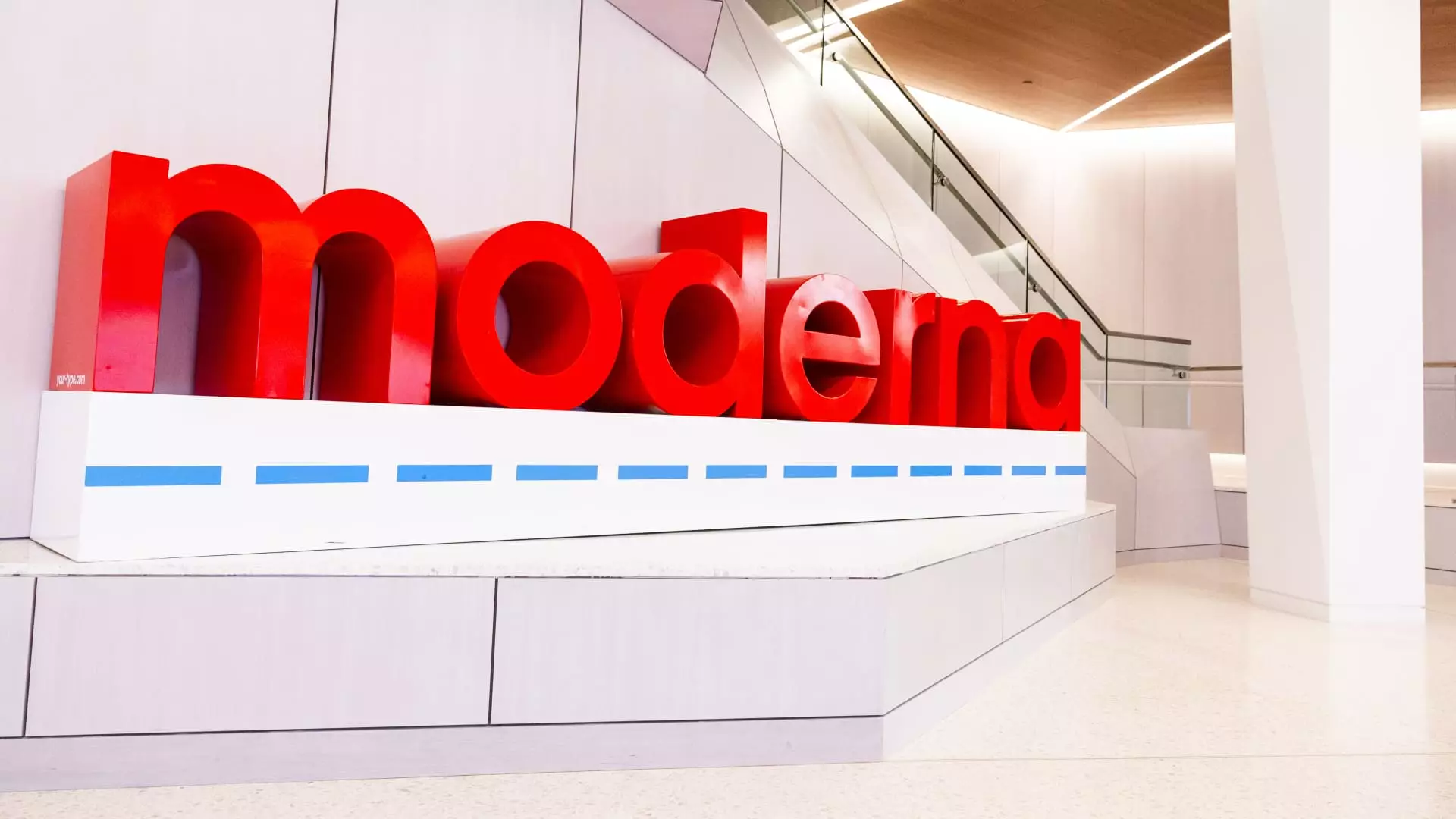On Friday, Moderna reported its fourth-quarter financial results for 2024, revealing a mixture of positive revenue figures but a staggering net loss that exceeded analyst expectations. The company’s performance continues to demonstrate the challenges associated with the fading demand for its COVID-19 vaccine, which had previously propelled its meteoric rise. As Moderna grapples with these issues, its stock plummeted more than 4% in premarket trading, indicating investor concern about the company’s future viability and growth potential.
For the quarter ending December 31, 2024, Moderna posted a net loss of $1.12 billion, translating to $2.91 per share. This starkly contrasts with a net income of $217 million, or 55 cents per share, in the same period the previous year. This significant loss encompasses various factors, including a non-cash charge of around $238 million linked to the termination of a contract manufacturing agreement. Amidst these substantial setbacks, Moderna’s Chief Financial Officer, Jamey Mock, highlighted an important achievement: a 27% decrease in overall costs compared to 2023.
Despite the disheartening quarterly results, Moderna has affirmed its full-year 2025 product sales guidance between $1.5 billion and $2.5 billion. However, a significant portion of these sales is expected to materialize in the latter half of the year due to seasonal trends in respiratory product demand. This year, sales in the first half are anticipated to total merely $200 million. Such projections have already played a role in Moderna’s decision to slash its 2025 sales guidance by nearly $1 billion earlier in January, leading to a staggering drop of over 20% in stock value.
In the backdrop of these sales forecasts are mounting challenges in the competitive landscape of the COVID-19 vaccine market. Decreased vaccination rates, the introduction of competing products, contract negotiations with countries, and uncertainties linked to the recommendations from the Centers for Disease Control and Prevention have all contributed to this increasingly turbulent environment. Mock stressed that if all these pressures converged, they would adversely affect the company’s positioning and possibly drive results to the lower end of the guidance spectrum.
Moderna reported fourth-quarter sales totaling $966 million, significantly down from the $2.8 billion experienced during the same timeframe in 2023. Here, a notable portion of the revenue—$923 million—originated from COVID-19 vaccines, exhibiting a 66% decline from the year prior. This included $244 million in domestic sales and $679 million from international markets. A key reason for this reduction stems from an earlier rollout of the new vaccine version in 2023, which shifted anticipated sales to the previous quarter. Despite projections of $909 million for the COVID-19 jab, the company’s ability to pivot swiftly benefitted its market positioning.
Additionally, Moderna’s revenue for the quarter included $15 million in sales from its respiratory syncytial virus (RSV) vaccine, an encouraging sign as it represents the company’s second approved product following its COVID-19 vaccine. As the RSV shot is permitted for adults aged 60 and above in various countries, including the U.S., European Union, and Canada, it indicates Moderna’s intention to diversify its product offerings.
Looking ahead, Moderna is shifting its focus from reliance on COVID-19 vaccine sales to strengthening its overall product pipeline. During the fourth quarter, the company submitted three new messenger RNA (mRNA) products for regulatory approval, including a next-generation COVID-19 vaccine, a combination shot for both COVID-19 and influenza, and an RSV vaccine tailored for higher-risk populations aged 18 to 59.
Moderna is betting heavily on its mRNA technology, aiming for ten new product approvals within the next three years. With anticipated decisions expected from the FDA regarding the next-generation COVID-19 shot in May and potential RSV shot expansion in June, the company’s research initiatives are crucial. Additionally, a standalone flu vaccine, personalized cancer treatments in collaboration with Merck, and vaccines targeting latent viruses are also under development.
Despite significant operational challenges, Moderna is making aggressive yet calculated moves to navigate through uncertain times. This multidimensional approach aims to recapture investor confidence and establish a sustainable foundation moving forward. Through continuous innovation and adaptation to market dynamics, the company is striving to regain its footing and secure a more promising future.

